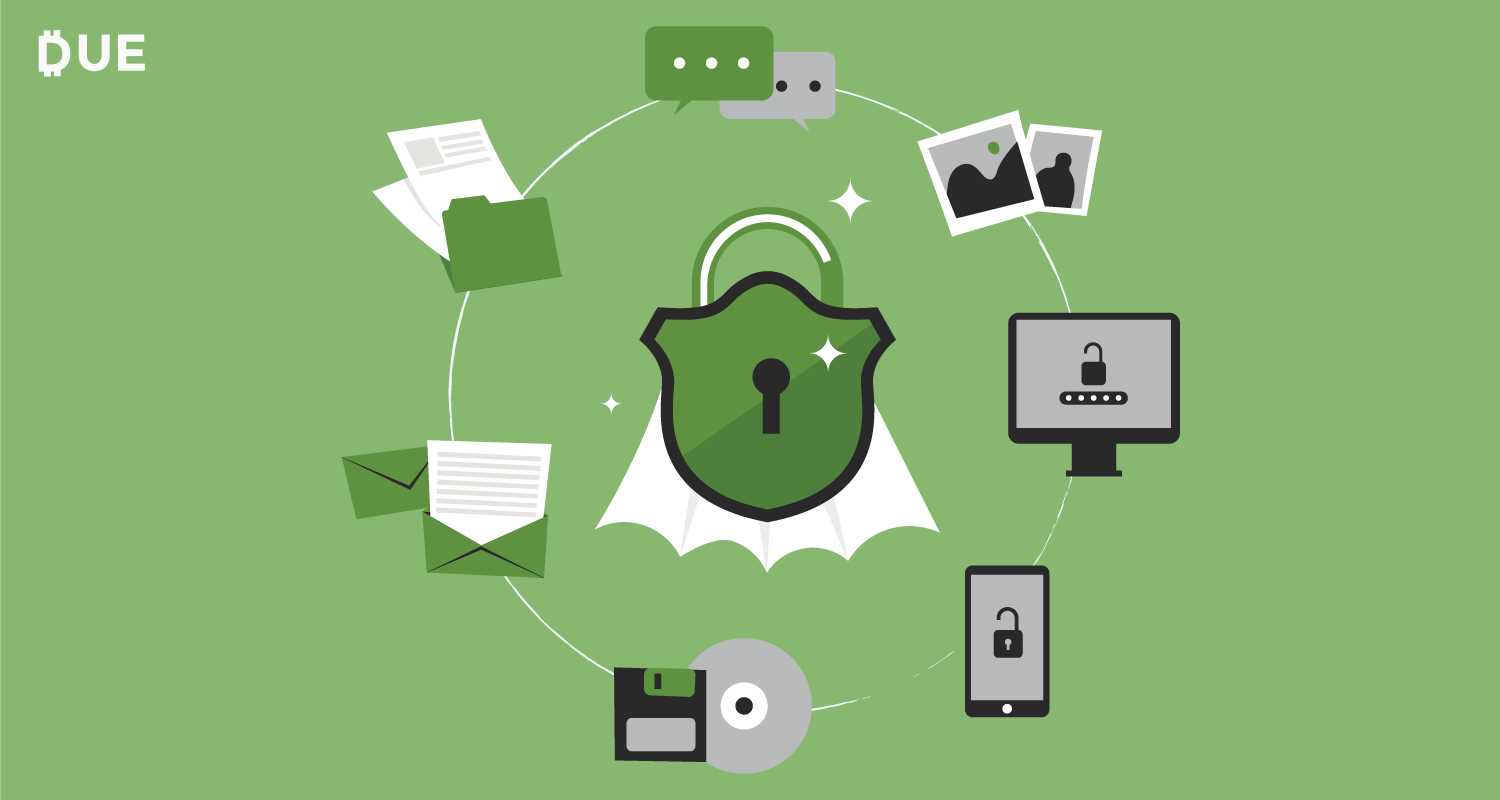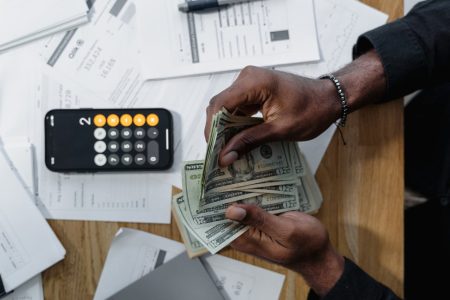In all aspects of your life, it’s imperative that you protect your finances at all costs. And this is especially true when it comes to your online activity. After all, in the 21st Century, we do pretty much all of our shopping, budgeting, and transfers digitally.
While convenient, that also means that we’re susceptible to cybercrimes like phishing scams, identify theft, unauthorized access, extortion, and password trafficking. Besides being frustrating, cyberattacks could end-up costing you anywhere from a few thousand dollars to over $3 million!
To prevent this from happing in the first cause, you need to be proactive. And here are 10 ways that you can effectively keep your finances safe online.
Table of Contents
Toggle1. Work only with FDIC-insured banks.
Regardless if you have your money in a traditional financial institution or an online bank, do your due diligence to make sure that’s FDIC-insured.
Created in 1933, the Federal Deposit Insurance Corporation (FDIC) was created in response to the Great Depression. For a quick history lesson, during that time, people panicked and made massive withdraws from banks. As a consequence, the banks couldn’t keep up with the demand.
To ensure that this didn’t repeat, the government created this independent agency to protect you from any loss of deposits if your bank fails. If so, you’ll be reimbursed up to $25,000.
Just be aware that not all accounts are insured. Typically, it covers most checking and savings accounts, negotiable orders of withdrawal (NOW), certificates of deposit (CD), and money market deposit accounts (MMDA). However, money market funds, stocks, bonds, annuities, safe deposit boxes, U.S. treasury securities, and insurance products are not.
2. Take advantage of credit card perks.
I’m in no way suggesting that you bury yourself in credit card debt. If you are responsible, meaning that you can pay off your balance each month, then this is a relatively safe way to shop.
For starters, credit cards aren’t always directly linked to your bank account. But, more importantly, they offer extra fraud protection. So, if there’s any fraudulent activity, you’ll get your money back. And they’ll also freeze your account if any suspicious transactions pop-up.
“There are many variables that can impact account activity. We look at several factors — such as concerns about fraud — when evaluating a customer’s credit situation and determining if any action needs to be taken,” says Ashley Dodd, communications manager for Chase Card Services. Examples would be when making a large purchase or when traveling abroad.
If you plan on traveling or making an expensive purchase, let your card issuer know in advance. And, if you spot a discrepancy in your statement, get in touch with them immediately.
3. Consider identity theft insurance.
While most card companies will send you fraud alerts, that doesn’t always guarantee that your sensitive data is 100% safe. That’s why you might want to purchase identity theft insurance.
In a nutshell, by paying a monthly or annual fee, identity theft protection company promise to protect personal information. In fact, these companies offer three services; monitoring, alerts, and recovery.
But, do you really need to dish this money out? It’s recommended that you only purchase identity theft insurance if:
- You’ve already been a victim of identity theft.
- You don’t feel that you have adequate identity theft monitoring.
- You’re not willing to actively monitor your credit.
- You don’t want to freeze your credit reports.
If you do the above, though, you probably don’t need identity theft insurance. But, if you do, check out services from LifeLock, IDShield, IdentityForce, or ID Watchdog.
4. Use common sense.
I may be coming off a tad abrasive here. But, I’m still shocked that people still feel for common scams like sharing secure information over the phone or on social media. And, who can forget the dreaded phishing email scams?
So, as a friendly reminder, always think before doing any of the following:
- Clicking hyperlinks in emails. Don’t get me wrong. These messages look legit. But that’s the idea. As a general rule of thumb, just never do this. But, if you have to, for some reason, you can hover over the address to make sure it’s from a trusted source. If the address looks funky, report it, and then send it to trash.
- Don’t shop on suspicious websites. Let’s say that you’re doing a little comparison shopping and find a killer deal on a site that you’ve never patronized. For peace of mind, you’re golden if it’s through a payment gateway like PayPal. If that’s not an option, use your credit card.
- Keep your social security number to yourself. Outside of trusted institutions, like your bank or doctor, never share this information with anyone.
- Be wary of social media. Avoid sharing too much personal information on your social media channels. In particular, your phone number and address.
- Be alert to impersonators. Never, and I mean never, share personal or financial information over the phone, web, or mail unless you’ve initiated the contact or know for 100% who you’re dealing with.
- Check the security of apps. Before downloading a new app, read reviews, and check its security protocols.
5. Always use secure and unique passwords.
Piggybacking from the previous point, use a different password for every online account you have. These passwords should also be random and contain a mixture of letters, numbers, and symbols.
Obviously, that’s a lot to remember. You could jot all of your logins down in a notepad so that you can refer to it when you can’t remember your unique password. Or, you could use a password manager.
LastPass, Dashlane, or 1Password are popular password managers that will generate random and unique passwords for you. They’ll also keep them securely stored on the cloud. That means you won’t have to remember all of your passwords.
If this gives you the heebie-jeebies, you could use KeePass. Unlike most other password managers stored on the cloud, KeePass stores them locally for added security.
6. Lock your devices.
You might not have ever considered this. But, your phone, laptop, tablet, and desktop contain a wealth of personal data. What’s more, you’ve probably set it up so that you can automatically log into your bank accounts. As such, one of the easiest ways to keep your finances safe is to keep your devices locked at all times.
For example, if you’re working from a coffee shop, close your laptop when you grab a refill. As for your phone and tablet, they should have locked screens that require a PIN, pattern, or password to unlock it.
Is this time-consuming. Yep. But, it’s time well spent if it ensures that all of your sensitive remains secure.
Bonus tip: Make sure that all of your apps, software, and operating systems are up-to-date.
7. Use a virus scanner and firewall program.
Most operating systems, like Windows, Chrome, and Apple, provide built-in virus protection. However, you may also want to purchase virus scanners, anti-spyware, and firewalls for extra protection. Options like McAfee, Norton, Avast, Bitdefender, Sophos, or Kaspersky can thwart hackers from accessing your personal information and passwords.
8. Be wise about public WiFi.
Whether you’re at the airport, local coffee shop, hotel, or shopping center, you’re connected to a public network. As such, it’s not all that difficult for hackers to access any personal information that may have entered.
If you are out and about, then definitely invest in a VPN (a virtual private network). It protects you by routing your device’s internet connection through your chosen VPN’s encrypted private network. In turn, you can safely surf the internet no matter where you are.
9. Set up two-factor authentication.
Another effective way to fortify your defenses against data breaches is through two-factor authentication. By setting this up, you have an extra layer of protection beyond a username and password. With 2FA, you will use something like biometric or PIN-based logins, which are more secure since they won’t transfer data over the internet.
Popular authenticator apps include Authy, Google Authenticator, Microsoft Authenticator, or HDE OTP (iOS only).
10. Take a daily money minute.
Finally, take literally one minute every day to check in on your finances. When you decide to do this is totally up to you — it should be at the same time so that it becomes a habit. For example, I do this right before the end of every workday as a part of my daily wind down.
The idea is pretty straight forward. Just login to your financial accounts or personal financial management app to double-check that everything’s on the up and up. For example, make sure that there aren’t any unusual transactions or that you have enough funds to cover an upcoming bill.
Also, making sure that nothing smells fishy, it’s a simple way to keep tabs on your budget. Maybe you noticed that you spent too much on groceries this week. If you spot this early enough, you can make the appropriate adjustments to get back on track.

















